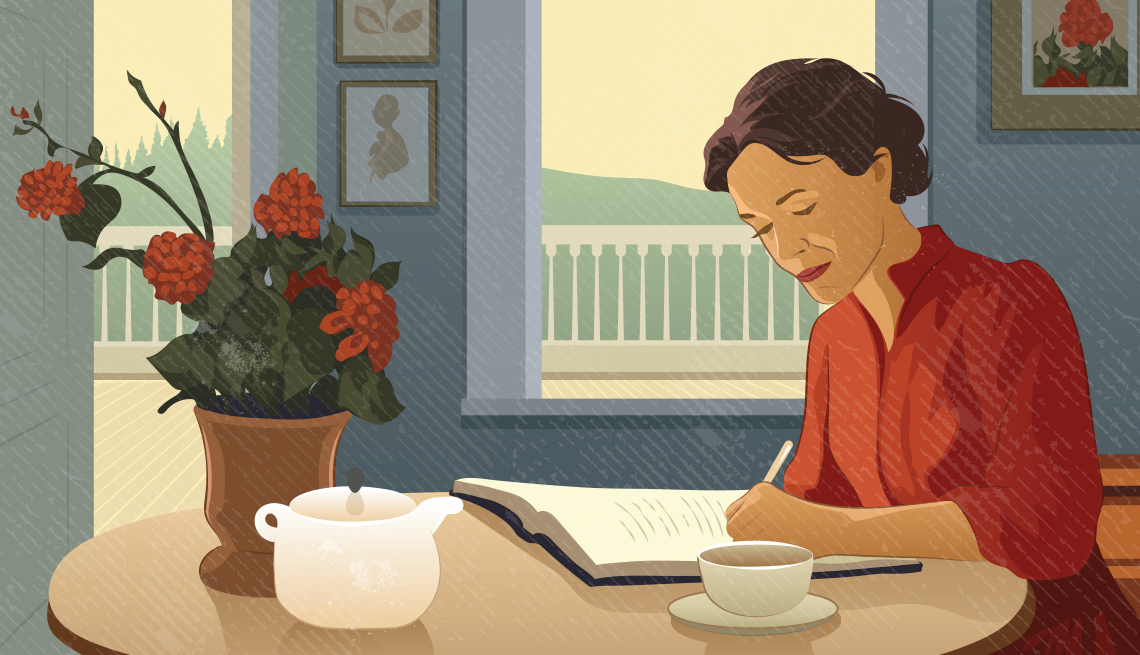Play all audios:
Shortly after the COVID-19 pandemic lockdowns began, my friend Julia asked if I’d like to be part of a weekly poetry group. Julia is 59, and her friend Martha is 95. They were chatting by
phone once a week to share poems they’d written and discuss a writing prompt for the following week. Would I join them? At age 60, I had my 20-something daughter, her boyfriend and my
husband all living and working at my house. I was also caring for my elderly mother who lived close by and juggling my own workload as a teacher and journalist. Adding a weekly poetry
commitment felt like overload, but for some reason that is still a mystery to me, I said “yes.” “Whether you’re learning a piece of music, a genre of fiction or a dance step — all of it
pushes you and your brain outside your comfort zone in the best possible way.” I hadn’t written a poem since middle school, but this weekly small act of creation — of trying something new
_and_ doing it with others — provided community, sanity and a sense of productivity at a time when much of my life was in upheaval. It’s been an intellectual and artistic challenge, has
taught me new ways of looking at the world (and myself), has helped me forge friendships and connections, expanded my education and helped me process feelings I didn’t even know I had. For
Martha, a former college professor and mother of four who at the time was on lockdown in her room in an assisted living facility in Asheville, North Carolina, our poetry group was a
lifeline. It was the same for Julia, a devoted extrovert, who had to adapt to life without the regular travel and constant stream of houseguests that characterized her pre-pandemic days.
Writing a poem every week was a small, doable thing that reminded the three of us that our creative brains still worked. I’ve even shared a few of my poems on social media, which has led to
new connections and renewed friendships. Julia and I have taken several online poetry courses together, including a MasterClass taught by former poet laureate Billy Collins. Joining a poetry
group taught McCleary new ways of looking at the world and herself. Courtesy: McCleary Based on our small group experience, I highly recommend finding one small creative act to do each
week. It doesn’t need to be poetry — find what you enjoy. Julia had tried pottery, which didn’t excite her, and several other creative pursuits before settling on poetry, a lifelong love.
“It’s finding the right thing that sings to your heart,” she says. With poetry, “we do it as a group, so there’s the benefits you get from interacting with others, but then there’s this
really deep sense of creating something, whether it’s a poem or painting or something else. There’s such a fulfilling feeling that happens when you create something that wasn’t there
before.” A recent Dutch study examined the value of active engagement in the arts — choir, theater, band, dance, visual arts — on older adults. Results showed that participants felt deep
connections to those doing the activity with them, and the authors wrote that “active art engagement increases older people’s emotional state. Having fun and laughing have a direct effect on
the body and state of mind.”

